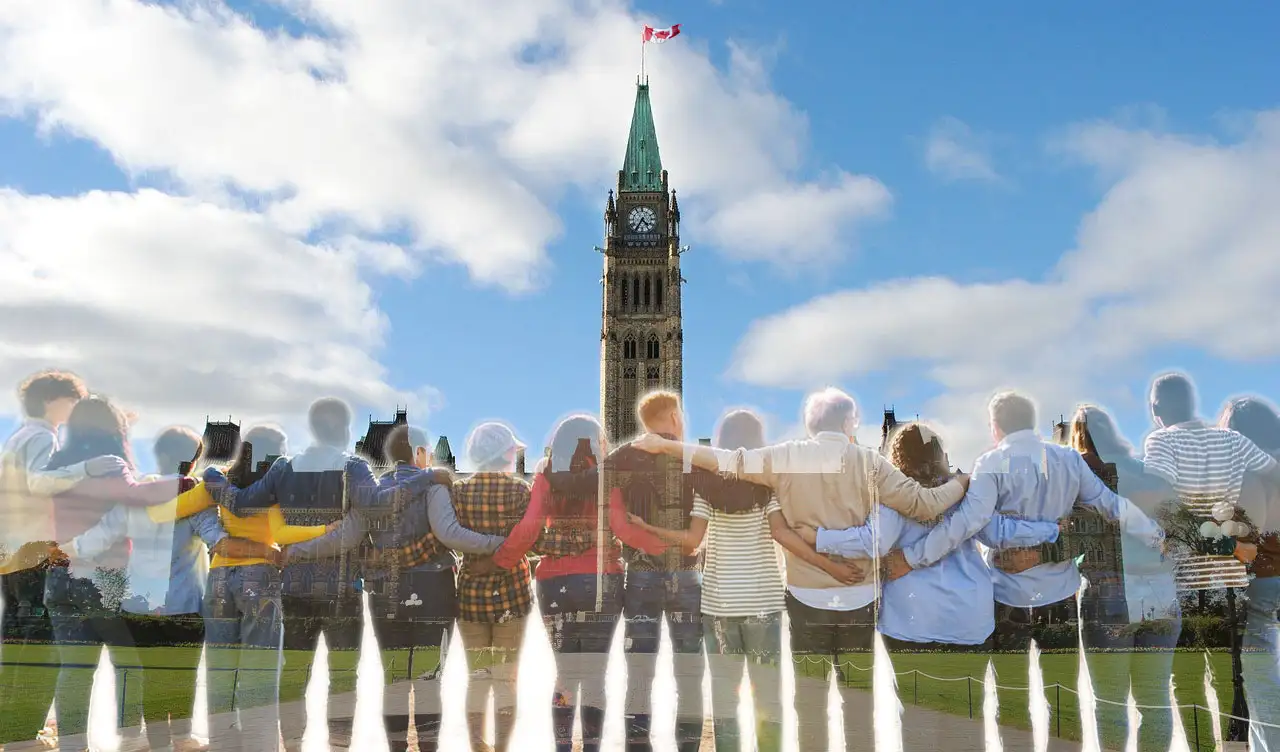
Antisemitism and The Fight for Inclusive Democracy
By Andrew Faas
This is the third in a series on antisemitism by a non-Jew.
The first, Is Canada an Antisemitic Nation? published on December 27, 2024, was an alert that something terrible was happening to our Jewish citizens, who were being persecuted because of historical and current events; and challenges non-Jews as bystanders to stop antisemitism before it goes from bad to worse.
The second piece was a follow up called, Antisemitism and the Dark Side of Emotional Intelligence, published on March 24, outlines how most of us have been influenced by this; and encourages that the issue of antisemitism be part of a national debate on who we are as a nation – antisemitic or a “North Star” in how to combat the evil forces who manipulate our emotions.
This third piece builds on the manipulation, having us believe that anti-wokeism is a fight against antisemitism, when in reality it is a fight against inclusive democracies.
In April 2025, the Jewish Council On Urban Affairs (JCUA) issued the following alert:
“Over the past month we’ve watched with alarm as the Trump administration escalates its attacks on civil liberties and democratic values. Executive orders, policy rollbacks, funding cuts, and detentions have spread fear across communities, weakened democracy, and undermined the very institutions that are meant to protect us all.”
and
“Some of these actions have been framed as efforts to combat antisemitism. Yet in truth, these policies make our Jewish community — and all communities — less safe.”
The guise of combating antisemitism and using it as a lightening rod to deflect from the moves against democratic values, follows the playbook used by Hungary’s Viktor Orban. William Echikson, in a Pulitico commentary, noted — “The Hungarian leader will insist that he’s the best friend of Hungarian Jews. He’s anything but.” adding, “The Hungarian government’s anti-immigrant rhetoric endangers all minorities, including Jews, and its comparisons with the 1930s are unmistakable.”
The JCUA in their alert made reference to ‘Project Esther’, which was crafted by the right-wing Heritage Foundation as part of its broader Project 2025 blueprint. Project Esther cynically exploits the Jewish community’s fears and experiences of antisemitism to justify oppressive policies, noting that “these policies fracture solidarity and suppress democratic participation — undermining the very coalitions we need to build a thriving, multiracial democracy. And by us in antisemitism as a pretext for authoritarianism, Project Esther risks making Jews the face of repression — fuelling division, mistrust, and harm.”
Or put another way — Jews will be blamed for the demise of democracy.
In what they called “A Better Approach” the JCUA offered: “we believe that true safety comes not from isolation or state power but from solidarity across diverse communities, united in a commitment to justice. We recognize that Jews are safest in democracies where everyone’s rights are protected, resources and power are shared, and relationships with neighbours are deep and meaningful.”
It is unlikely that the United States will adopt this proposition for a “better approach” given how deep-rooted Project 2025 is, the coordination and viciousness of the far-right element and the absence of a coordinated opposition to it.
Today, Canada, more than any other Western democracy, is positioned to foster this “solidarity across diverse communities” united in a commitment to justice, equity, and a vision of collective safety.
This is not to say Canada has been immune to the unprecedented challenges of geopolitical instability, political polarization, economic inequities, declining happiness, low engagement, and an ecological crisis.
Canada has also not been immune to the mobocracy approach taken by the DEI bureaucracies in most public and private institutions, and the deep resentment this has caused. Antisemitism exposed the fatal fault line of DEI and how exclusionary the approach was. Ironically the many who harbour a resentment on the approach, also perceive that Jews have a preferred status. The consequence of this is a strong “anti-woke”, anti-liberalization, and by extension, antisemitic sentiment.
Responding to public pressure, Canadian business leaders are happily following the lead with their US counterparts in disavowing DEI without instituting a “better alternative” to create environments where all individuals feel valued, respected, safe and have equal opportunities. The reason for their happiness is that it relieves them from what they view as a legal and public relations burden, which was the reason for their embrace of DEI in the first place.
While these are huge hurdles to overcome, Canada has five distinct advantages. One, a higher sense of unity, urgency and purpose in protecting our sovereignty; second, a window of (all though it be short) time to reset our socio-economic system to reduce the risk and vulnerability of becoming the 51st state; third, a less coordinated and vicious far right element; fourth, the hard realization by other minority groups (particularly Blacks and LGBTQ) on the need to be part of a broader coalition given the DEI withdrawal and how their US counterparts live in dread; and fifth, the fact that an ordinary citizen can write an article such as this without fear of retribution from the state. To fully appreciate this point, my associates, academics, at Yale, do not enjoy this fundamental right.
We, as Canadians, have a responsibility to exercise the fundamental right of free expression by becoming more actively and positively engaged. As Margaret J. Wheatley put it: “in these troubled, uncertain times, we don’t need more command and control; we need better means to engage everyone’s Intelligence in solving challenges and crises as they arise.”
To facilitate engagement, the onus must be on governments and employers to create the conditions for engagement, which include mutual trust and respect, a sense of stability, purpose and efficacy, and the ability to speak truth to power. Creating these conditions is the “better approach” advanced by the JCUA and the “better means” by Wheatley, than simply relabeling DEI.
JCUA, in their alert, acknowledges: “We know this work is not always neat or easy. It means navigating complexity, staying in relationship even when it’s hard, and choosing courage over comfort. But we stay rooted and connected because we know our liberation is bound up with one another’s.”
Andrew Faas is a resident of Toronto, Ontario and Saint Andrews, New Brunswick, author of From Bully to Bull’s Eye: Move Your Organization Out of the Line of Fire, a Public Voices Fellow at Yale University, and for 33 years was a senior executive with the Weston/Loblaw/Shoppers group of companies. More recently, Andrew published Socio-Economics 101: Creating a More Stable World, a tutorial with a focus on Canada.









